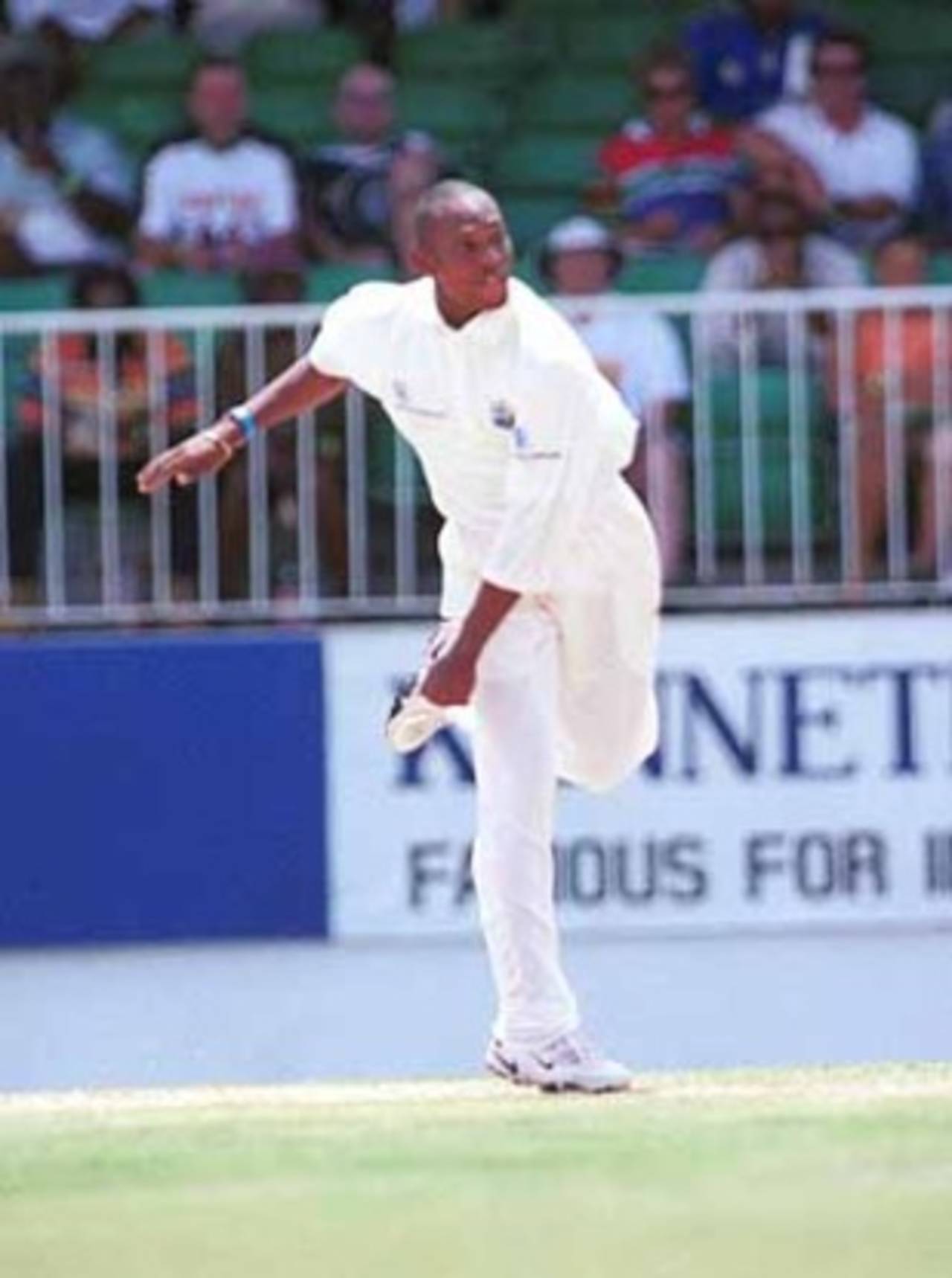Lessons on the cricket field
Perhaps the player one learnt the most from at the National championship was former West Indies Test cricketer Neil McGarrell, the captain of the Atlantic Region
Samarth Shah
25-Feb-2013

Perhaps the player one learnt the most from at the national championship was former West Indies Test cricketer Neil McGarrell • Rian Botes/ESPNcricinfo Ltd
And so the Northwest Region won the national championship. It wasn't ideal, what with one of the three games being decided in our favour back at the hotel after being interrupted by bad light, and another being rained out. But we'll take it. Rank underdogs, seeded fourth out of the four qualifying teams, the only team with no former first-class cricketers in its ranks, perhaps deserved a bit of luck on its way to making history. According to those who know some USA cricket history, it was the first time ever that either of the west coast teams had won the national championship. My team comprises Cisco, IBM, Microsoft employees, and assorted Silicon Valley geeks, who would take out the smartphones on the morning of games and look up our opponents' first-class averages on Cricinfo.
I was extremely impressed though by the grace shown by the other sides, in what was a desperately unlucky weekend for them. Class on the field is commonly on display at these national level tournaments, and I frequently pinch myself to make sure that I really am playing cricket amid such talent. But the camaraderie and class shown off the field was doubly impressive. For example, there were no unseemly protests or remonstrations with the umpires, from the Atlantic Region, when our game was called off due to bad light, even though neither team had complained about the light. The game was later awarded to us, since we were ahead narrowly on both run-rate and by Duckworth-Lewis. (What those metrics didn't account for was that Atlantic had just taken 16 off a single over; thus momentum was with them.) Even with so much at stake, the umpires' decision was taken in stride: ill-luck being part of the game and all.
Perhaps the player one learnt the most from at the national championship was former West Indies Test cricketer Neil McGarrell, the captain of the Atlantic Region. On the field while bowling, batting, fielding, or just rallying his side through sheer composure, he was a sight to behold. Strangely, no tournament MVP [most valuable player] was awarded, but he was the MVP, for all my money. I will tell my grandkids that I faced two Test bowlers in tandem (McGarrell and Jermaine Lawson), and later, also caused a few problems for McGarrell, when I bowled to him. The Southwest Region led by Mehul Dave also seemed to harbour no rancour that their shot at the national championship was washed away in the rain on the final day.
In fact, this is the second time the guys from the Atlantic Region have shown their class. The first time was last year at the US national trials, when, despite having a couple of left-arm spin candidates from their own zone, seniors like Clain Williams, Imran Awan, Aditya Mishra, and Siddharth Mehta spared no effort in assisting and guiding me. They read the wicket for me, helped me with my trajectory and the skipper for one of the trial games, Clain, even had me bowl first-change, ahead of the Atlantic Region's own left-arm spinner! I have long believed, generally speaking, the higher one goes in cricket, the nicer the blokes one plays with get. That's because sport in general builds character, and the ones who succeed, are not just talented, but are also fundamentally good guys. I know readers are making a list of bad boys right now, but ignore the media portraits, and trust me on this one.
And so we Seattle-ites returned home to record snowfall, and temperatures diving to -5 Celsius. It was as if the weather was trying to remind us in the most emphatic fashion, that despite three days of cricket in Florida, this is in fact the off season. For the last nine months, cricket has been such an important part of every day, occasionally taking priority over even work and family. Now there's a gaping void to fill. There is no cricket to be played here in Seattle for the next two to three months.
But this is where watching cricket on TV, and reading about it, come in. I am watching the Ashes, and I look forward to the India’s tour of South Africa. In the past, I've also spent the off-season reading cricket books. Last winter, my wife bought me a copy of "Flying Stumps and Metal Bats,” - a Wisden Cricketer compilation of cricket's greatest moments. A fun read. I also read a lovely book about an annual village cricket game in England, called "Not Dark Yet," by Mike Harfield. The best cricket book I've read in the last few years though - apart from the one that my wife bought me, naturally - is Peter Philpott's "The Art of Wrist-Spin Bowling," lent to me last year by my team-mate Saurabh Verma. I'm not a wrist-spinner myself, but a lot of the principles in it applied to finger-spin as well.
I also plan to hit the gym in these couple of months, towards preparation for next year. That's easier said than done during holiday season, when life is slow, the weather is cold, and there's plenty of food everywhere. But I recall Justin Langer once saying - many years ago - that mental toughness has little to do with what one does on the field on the day of the game. It has more to do with convincing oneself to get up and go to the gym when there's no game, and when you don't really want to. In Justin Langer we trust.